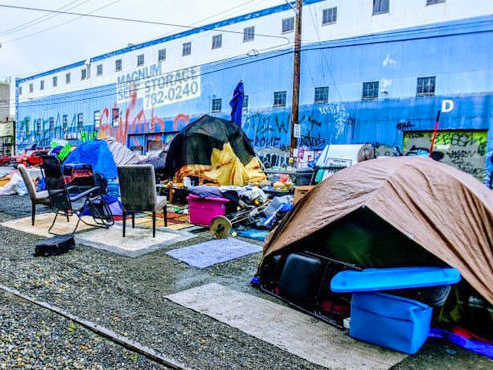“We have a public health crisis on our hands and a problem around chronic homelessness that’s only been made worse by this pandemic. So we’re going in the wrong direction as a city. Too many people are suffering in our parks, our public spaces, on our sidewalks. And it’s time for action,” he told KIRO Radio’s Gee and Ursula Show.
“We need to move with much greater urgency to provide people the services and the housing that they need so we can bring more people inside. And that’s what this is about: bringing more people inside.”
Scholes says the Seattle homeless issue has brought together various groups in the community, that seem aligned in their mission to help homelessness.
“I think there’s a lot of alignment among voters among the business community and nonprofit leaders who helped shape this. We’re all frustrated with the status quo. No one is happy with the current situation of too many people suffering on our streets, our parks not open and usable, public spaces and sidewalks being blocked,” he said.
“So these are shared goals and this charter amendment is the public and the voters’ opportunity to really send a message in a signal to City Hall of this is what we want to see, and this is the approach that’s necessary.”
Among other things, the charter amendment would mandate that the city provide 2,000 emergency and permanent beds within one year of being enacted. It also says that the city has to provide adequate supply of mental health and drug treatment options. As Ursula asked, how much, approximately, would that cost and who pays?
“Well, what’s expensive now is the status quo, and I think before we talk about costs in any way, I think we have to acknowledge what we’re doing now, that the failure of our ability to keep our park system open, to have a response to people in need, the impact on small business and neighborhoods is very, very expensive,” Scholes responded.
